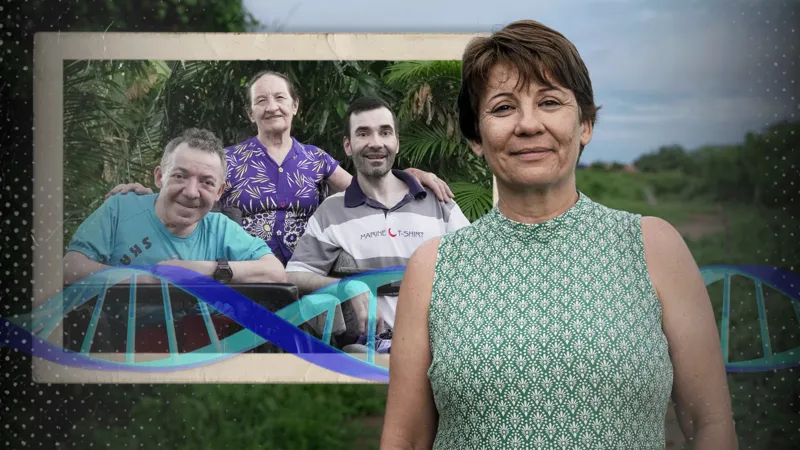by GIULIA GRANCHI & VITOR TAVARES

Before Silvana Santos arrived in the little town of Serrinha dos Pintos more than 20 years ago, residents had no idea why so many local children had lost the ability to walk.
The remote town in north-eastern Brazil is home to fewer than 5,000 people, and is where biologist and geneticist Santos identified and named a previously unknown condition: Spoan syndrome.
Caused by a genetic mutation, the syndrome affects the nervous system, gradually weakening the body. It only appears when the altered gene is inherited from both parents.
Santos’s research marked the first time the disease had been described anywhere in the world. For this and later work, she was named one of the BBC’s 100 most influential women in 2024.
Before Santos arrived, families had no explanation for the illness affecting their children. Today, residents talk confidently about Spoan and genetics.
“She gave us a diagnosis we never had. After the research, help came: people, funding, wheelchairs,” says Marquinhos, one of the patients.
Serrinha dos Pintos: a world of its own
Where Santos is from in São Paulo, Brazil’s largest and wealthiest city, many of her neighbours were members of the same extended family originally from Serrinha. Many of them were cousins of varying degrees, married to each other.
They told Santos that many of people in their hometown couldn’t walk, but that no-one knew why.
One of the neighbours’ daughters, Zirlândia, suffered from a debilitating condition: as a child, her eyes moved involuntarily and over time, she lost strength in her limbs and needed to use a wheelchair, requiring help with even the simplest tasks.
Years of investigation would lead Santos and a research team to identify these as symptoms of Spoan syndrome.
They would go on to find 82 other cases worldwide.
BBC for more
